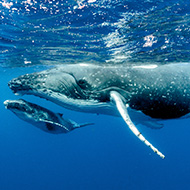UK Government pledges millions to protect world's habitats

UK negotiators are driving to get the 30by30 target included in a new UN Global Biodiversity Framework.
The UK Government has announced new funding to support developing countries in delivering the '30by30' target, which aims to protect at least 30 per cent of the world's land and ocean habitats by 2030.
At the UN Convention on Biological Diversity (COP15), Environment Secretary Thérèse Coffey pledged nearly £30 million to the cause.
Thérèse Coffey MP addressed those at the convention: “At COP15 countries can put nature back on the road to recovery with a strong Global Biodiversity Framework that includes a commitment to see at least 30% of the world’s land and ocean protected by 2030.
“In support of this objective I’m pleased to announce up to £29 million to support developing countries in delivering the ‘30by30’ target and £5 million of funding for projects which showcase the incredible work underway to study and restore nature across our network of Overseas Territories.”
Over 100 countries globally are supporting the 30by30 target, and the funding provided will be used to provide nations with the necessary tools to protect fragile ecosystems and tackle habitat loss by addressing deforestation, and unsustainable farming and fishing practices.



 Zoetis has launched a new survey to identify management techniques for Equine Herpes Virus (EHV).
Zoetis has launched a new survey to identify management techniques for Equine Herpes Virus (EHV).